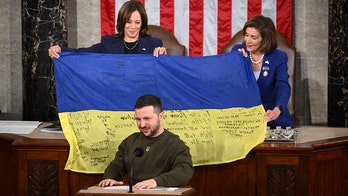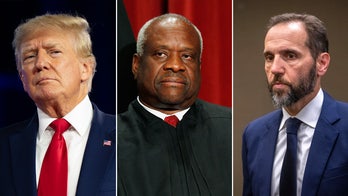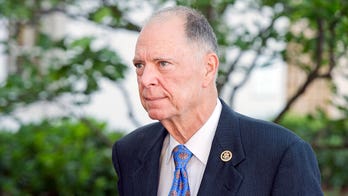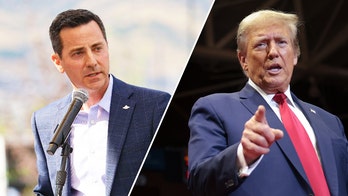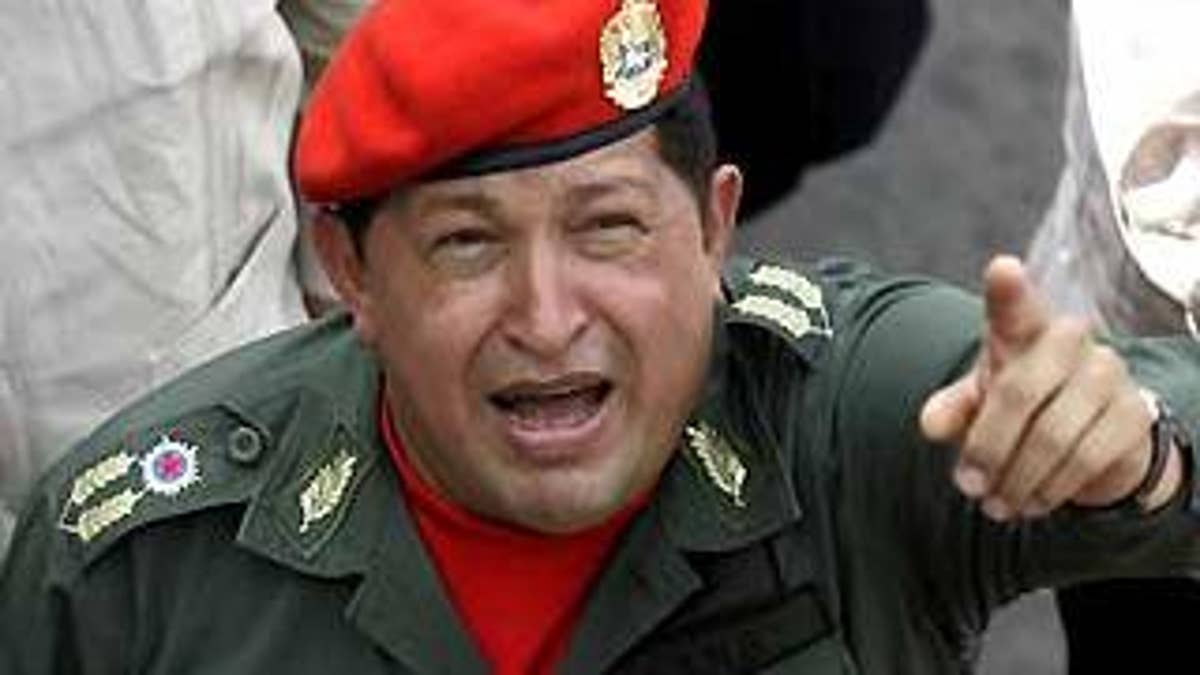
(AP)
Hugo Chavez has cultivated a world image of a cuddly, mischievous leftist.
But behind the softy socialist persona is a ruthless politician, a Venezuelan president whose regime is described by the U.S. State Department and others as one of the world's leading abusers of human, political and social rights.
Chavez's transgressions since taking office in 1999 have amounted to much more than merely throwing insults, as he did at former President Bush at the opening session of the 2006 U.N. General Assembly. It was there that Chavez described the American president, who had spoken one day earlier, as the "devil" whose sulfur stench remained at the podium.
Human Rights Violations
A 2006 State Department report on human rights documented a slew of abuses, including data implicating Chavez's security forces in about 6,000 killings over five years.
The department's annual Country Report on Human Rights practices released in March 2008 cited The Venezuelan Program of Action and Education in Human Rights statistic of 165 unlawful killings by Chavez security forces from October 2006 through September 2007.
The group reported that it received 11 complaints of torture and 692 complaints of cruel or degrading treatment during the same period, which was actually a decline from the year before.
"Reports of beatings and other humiliating treatment of suspects during arrests were common and involved various law enforcement agencies," reads the 2008 State Department report.
Workers Rights and Election Tampering
Alarms have been raised recently about Chavez's crackdown on his political opponents.
Manuel Rosales, mayor of Maracaibo, dropped out of sight a few weeks ago after the government filed corruption charges against him. Supporters said he had gone into hiding, and FOX News learned Tuesday that he is seeking political asylum in Peru.
He's not alone. Antonio Ledezma, another Chavez opponent, was elected mayor of Caracas in 2008 but is being barred from his office by his own police force, which attacked him when he tried to enter it.
"What's going on is persecution," said Susan Purcell, director of the Center for Hemispheric Policy at the University of Miami.
The crackdown began after Chavez won the battle to remove presidential term limits, amending the nation's constitution in a February referendum.
"Discrimination on political grounds has been a defining feature of the Chavez presidency," Human Rights Watch wrote in a 2008 report, titled "A Decade Under Chavez."
The report said while Chavez came into office pursuing human rights reforms, a short-lived 2002 coup changed that aim and provided a "pretext" for government policies that undercut those protections. The Venezuelan government kicked Human Rights Watch monitors out of the country shortly after the report was released.
According to the Human Rights Watch report, Chavez:
-- Maneuvered a "political takeover" of the Supreme Court in 2004 by the president and his allies by signing legislation allowing his supporters to "pack and purge" the court.
-- Fired and blacklisted political opponents from state agencies and the Venezuelan oil company.
-- Denied citizens with unfavorable political opinions access to social programs.
-- Required state oversight and certification of union elections.
-- Engaged in reprisals against striking oil workers.
-- Subjected rights advocates to exaggerated charges and groundless investigations.
Media Control
Reporters Without Borders took Chavez to task in its 2008 report on press freedoms. It reported that Chavez:
-- Shut down RCTV, the major Venezuelan TV station, in 2007 by refusing to renew its license. Though Chavez apparently said he was not renewing the license because the station backed the 2002 coup, Reporters Without Borders said in its report that Chavez had a more sinister motive, since another TV station that backed the coup was allowed to continue operating. (RCTV later moved to cable, but was still threatened.)
-- Controls "nearly all the country's broadcasting." Chavez went on TV 1,500 times for more than 900 hours between January 1999 and November 2007. Plus he took up 1,000 hours on his Sunday show Alo Presidente.
-- Pushed for the creation of about 60 newspapers to support his agenda.
The State Department report also noted that harsh freedom-of-speech and press laws are still on the books in Venezuela.
-- The penal code was amended in 2005 so that insulting the president is punishable by up to 30 months in prison.
-- Inaccurate reporting that disturbs the public peace carries a sentence of up to five years.
Those laws have not prevented Chavez and his officials from singling out certain publications, according to the State Department.
"Independent media outlets and journalists were subject to public harassment by high-ranking government officials on state-owned media," the report reads. "The independent print media regularly engaged in self-censorship due to fear of government reprisal and in order to comply with laws regulating the media."
FOX News' Steve Harrigan contributed to this report.

